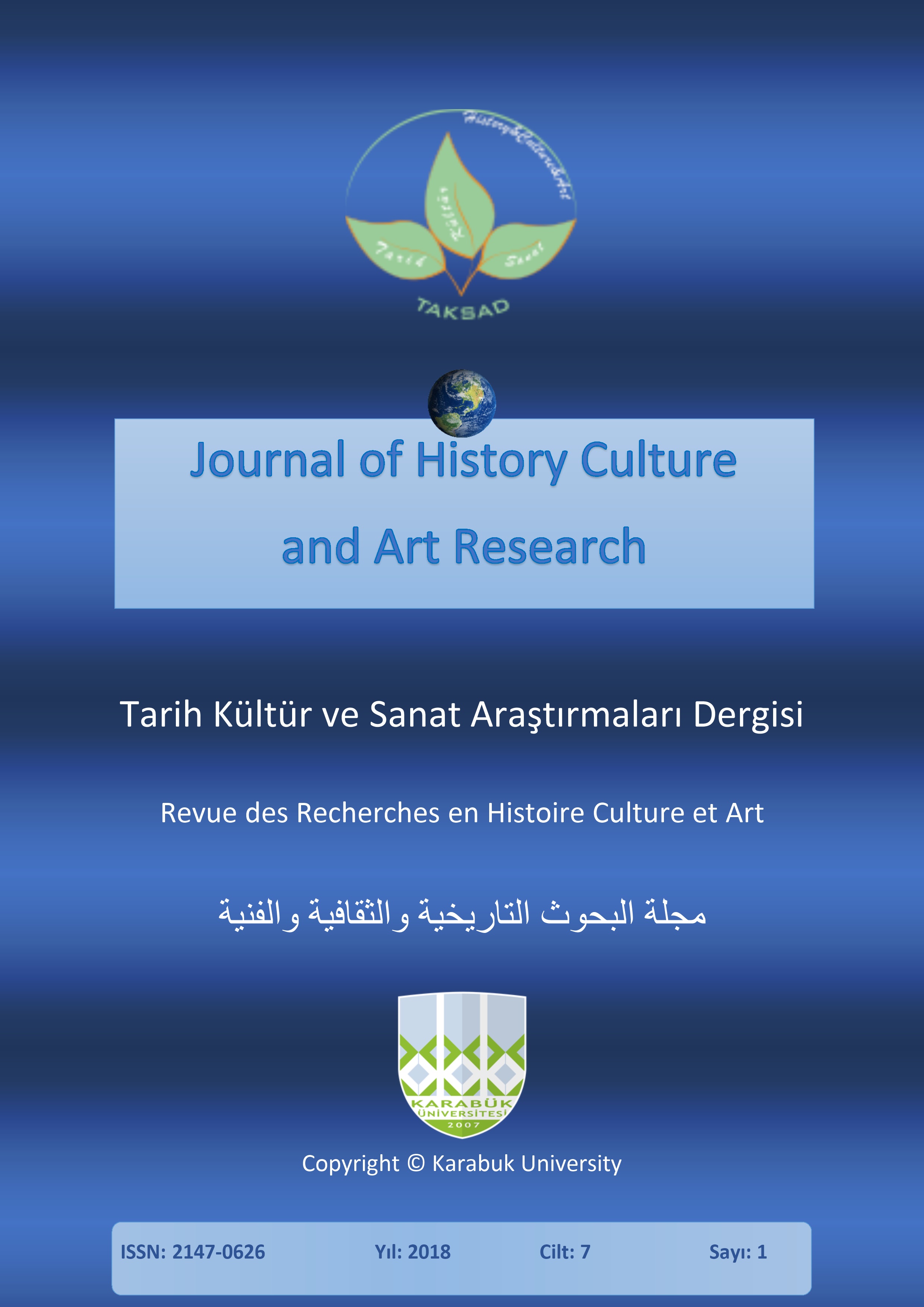Etymological Component of Concepts “Summer” and “Autumn” and Its Influence on National and Cultural Specifics in Perception of Seasons in Slavic and German Linguistic Cultures
DOI:
https://doi.org/10.7596/taksad.v7i1.1472Keywords:
Concept, Etymology, Archaic core, Ethno-cultural specification.Abstract
The article presents an analysis of etymological component of the concepts summer and autumn in the Russian and English languages with the aim to identify the archaic core of these concepts and their comparison in Russian and English languages, the identification of similar and different components in their structure. Russian and English native speakers have similar concepts that can be grouped according to various criteria. Often similar concepts of different linguistic cultures are not completely the same in terms of their content and that proves their national identity. Such discrepancies can be significant for intercultural communication. The concepts summer and autumn are concepts with perceptual and sensory cores, therefore their multidimensional analysis is important and interesting from the point of view of identifying the general and national-caused elements of these concepts among representatives of the Slavic and Germanic language pictures. Such concepts are archetypal, ambivalent in their content and express the specifics of the world picture of the ethnos. In addition, historical-cultural approach taken in this study is the least developed area in the study of the concept. And etymology – is the source from which develops the conceptual content, reflection of the initial “naïve” ideas about the denotation, that are the “core” from which any concept in any language develops.
References
Alefirenko, N. F. (2003). Problemy verbalizacii koncepta: teoreticheskoe issledovanie. Volgograd: Peremena.
Ayto, J. (n.d.). Dictionary of Word Origins, e-text.
Blinova, O. I. (1995). Leksiko-semanticheskaja kategorija i svojstvo slova. Russkie govory Sibiri, (pp.11-21). Semantika: Tomsk: Izd-vo Tom. un-ta.
Cejtlin, R. M. (1999). Staroslavjanskij slovar' (po rukopisjam X-XI vekov). Mosocw: Russkij jazyk.
Chamber’s, W. (ed.) (n.d.). Etymological dictionary of the English language: e-text.
Chantrell, G. (ed.) (2004). The Oxford Dictionary of Word Histories. Oxford: Oxford University Press.
Chernyh, P. Ja. (1999). Istoriko-jetimologicheskij slovar' sovremennogo russkogo jazyka. V 2h tomah. Moscow.
Fasmer, M. (1986). Jetimologicheskij slovar' russkogo jazyka v 4 tomah. Moscow.
Gamkrelidze, T. V. & Ivanov V. V. (1984). Indoevropejskij jazyk i indoevropejcy. Ch.1, Ch.2 – Tbilisi: Izd-vo Tbilisskogo un-ta.
Kornilov, O. A. (2003). Jazykovye kartiny mira kak proizvodnye nacional'nyh mentalitetov. Moscow: CheRo.
Merriam-Webster Dictionary-Thesaurus, e-text.
New Collegiate Dictionary of English, e-text.
Partridge, E. (1963). Origins. A short etymological Dictionary of Modern English. London.
Potebnya, A. A. (1976). Iz zapisok po teorii slovesnosti. -T. 4. Moscow.
Preobrazhenskij, A. G. (1959). Jetimologicheskij slovar' russkogo jazyka. T. 1, 2. GIS.
Shanskogo, N. M. (1968). Jetimologicheskij slovar' russkogo jazyka pod red. Moscow: Izd-vo MGU.
Slovar' drevnerusskogo jazyka XI-XIV vekov. V 10-ti tomah. (1988). Moscow.
Slovar' russkogo jazyka XI-XVII vv. (2002). Moscow: Nauka.
Sreznevskij, I. I. (ed.) (1912). Materialy dlja slovarja drevnerusskogo jazyka. V 3 t. Peterburg.
Tolstoy, N. I. (ed.) (2009). Slavjanskie drevnosti: Jetnolingvisticheskij slovar' v 5-ti tomah - Moscow: Izd-vo Mezhdunarodnye otnoshenija.
Trubachev, O .N. (ed.) (1974). Jetimologicheskij slovar' slavjanskih jazykov. Praslavjanskij leksicheskij fond. Moscow: Nauka.
Zhukov, V. P. (1978). Semantika frazeologicheskih oborotov. Moscow: Nauka.
Downloads
Published
How to Cite
Issue
Section
License
All papers licensed under Creative Commons 4.0 CC-BY.- Share — copy and redistribute the material in any medium or format
- Adapt — remix, transform, and build upon the material for any purpose, even commercially.
Under the following terms:
Attribution — You must give appropriate credit, provide a link to the license, and indicate if changes were made. You may do so in any reasonable manner, but not in any way that suggests the licensor endorses you or your use.
- No additional restrictions — You may not apply legal terms or technological measures that legally restrict others from doing anything the license permits.







